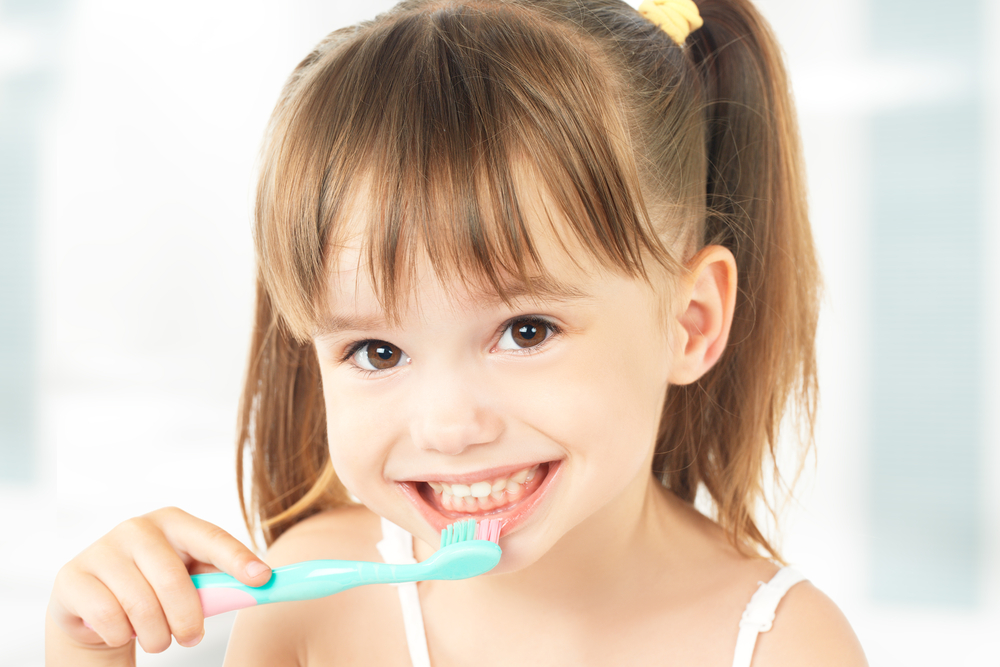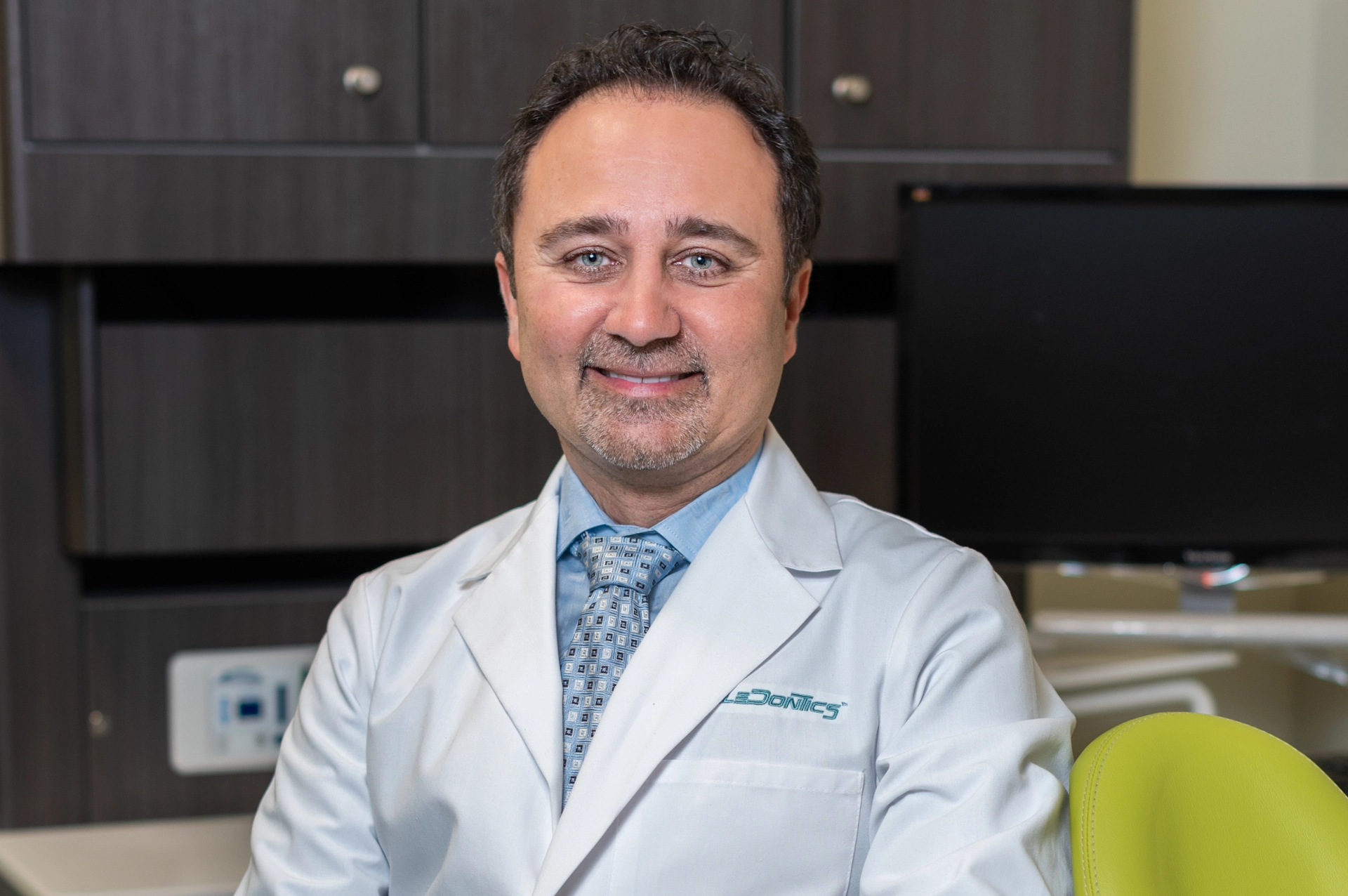
Wondering how to choose the best toothbrush for your children? Every parent or guardian wants the best oral healthcare for their children, but it’s hard to succeed without the proper tools. The right “tool”—in this case, your child’s toothbrush—makes all the difference. But with so many pediatric toothbrushes on the market, which one is right for your child?
Standing in the oral care aisle at your grocery store is sure to leave you with questions.
- Is this the best baby toothbrush?
- At what age can a child use an electric toothbrush?
- What is the best toothbrush for toddlers
- How do I find the right toothbrush for my child as they get older?
If you feel unsure about how to choose the right toothbrush for your kids, we have you covered. Follow our guide below to help you choose the best toothbrush for your little one.
How to Choose the Right Toothbrush: Things to Consider
As adults, we rarely put much thought into which toothbrush we use. Other than bristle softness and maybe a cool-looking angled brush head, we tend to think of toothbrushes as “just another purchase.” We may just use the toothbrush we get at our dental visits every six months. These habits sometimes impact how we buy toothbrushes for our children, too, as we often think all toothbrushes are pretty much the same.
But of course, they’re not, and that’s especially true for your children’s toothbrushes. A toothbrush is the ultimate anti-cavity, breath-freshening, mouth-cleansing tool for achieving optimal oral hygiene and health.
Like any other job, having the right tool helps achieve any mission. For parents and guardians, their mission should be exceptional oral health for their kids. After all, rates of tooth decay and gingivitis in children are much higher than you may think.
It might surprise you to learn that the most common chronic disease among children in the United States is dental caries, the disease that causes cavities.. In California alone, more than half of children in kindergarten have dental decay and about one in five kindergarteners has more than seven cavities. In children ages 12 to 19 in the U.S. 13% have at least one untreated decayed tooth.
Clearly, pediatric and adolescent dental care could be improved in the United States, but your child doesn’t have to join those statistics. In fact, your child’s toothbrush can play a vital role in preventing and reversing tooth decay and poor oral health.
Just like answering” how to get the most from flossing ” and “ when should your child see a pediatric dentist,” buying the right children’s toothbrush is a crucial step in ensuring consistent, effective, and sustainable dental care at home. Not sure where to start? Your child’s age is one of the most important parts of determining which toothbrush is best for them. Let’s take a look at what to consider when choosing a toothbrush for your child.
Hard vs. Soft Toothbrushes: Which is Better?
Children should only use soft or ultra-soft bristled toothbrushes.. Hard bristles can damage your gums and could even impact the integrity of your teeth. Soft bristles, on the other hand, are more comfortable and safer for your teeth and gums. They’re also better at removing plaque and food debris from your teeth and gum line.
Electric vs. Manual Toothbrushes: Which is Better?
The best toothbrush is the one that helps you brush most effectively. Manual toothbrushes work wonderfully as long as you’re careful to brush correctly and get to each part of the mouth.
Electric toothbrushes are not required and can be a cost deterrent. Nevertheless, sometimes an electric-powered toothbrush can feel more enjoyable and can help you access parts of the mouth that are trickier with a manual toothbrush. If that’s the case, the electric toothbrush might be a better match.
If you do choose an electric toothbrush, use a brush head with soft bristles, and don’t brush too aggressively. Let the electric toothbrush do much of the work for you.
At what age can a child use an electric toothbrush?
You may have seen electric toothbrushes designed for babies and thought, “At what age can a child use an electric toothbrush ?” You can start using electric toothbrushes meant for babies as young as 6 months. However, at that age, the sonic vibrations are usually there to soothe teething discomfort than to remove plaque.
Usually, just wiping your baby’s gums with a clean, damp cloth is recommended. However, electric toothbrushes for babies massage a baby’s gums, so they’re particularly gentle. Once your baby’s first tooth erupts, make an appointment for their first dental visit. You can ask your child’s dentist what type of toothbrush is best for your child.
If you can’t find an electric toothbrush made for babies, or your baby doesn’t like the feeling, wait until age 2 or 3 to try again. At this point, they may be able to tolerate the vibration better. The novelty of the electric toothbrush for kids might also make the brushing process easier and more fun for them.
Size, Quality, and Shape of Toothbrush
Find a toothbrush with soft bristles and a small head so you can access all the hard-to-reach spots in your child’s mouth. Regardless of whether it’s a manual or electric toothbrush, make sure it fits comfortably and can maneuver it easily around the mouth. Once your child starts practicing brushing on their own, choose a toothbrush with a larger handle to help them hold it more easily. As your child gets older, the toothbrush head will get a bit larger to help accommodate a growing mouth.
Look for a quality toothbrush that you can count on to be safe for your child. Ask your dentist for a safe, effective choice.
What Toothbrush is Best for Babies and Toddlers?
Many parents are surprised to learn that they should begin wiping their baby’s gums as soon as they’re born. Infant finger toothbrushes are also a great way to keep your baby’s gums clean and healthy. This helps wipe away milk sugars after eating and also helps establish an oral care routine early. This is important because once the first tooth erupts, you should begin brushing that little pearly white. But what toothbrush is best for babies? For infants, choose a finger toothbrush or a toothbrush with very soft bristles, as babies’ gums are very sensitive—particularly while teething. Opt for a small brush head for navigating around a little mouth.
What is the best toothbrush for a 1-year-old?
The best toothbrush for a 1-year-old is the one that they’re excited to use twice per day! It should have ultra-soft bristles and a small enough head to move easily in a small mouth, but it should reach any back molars that have appeared.
When you’re ready to graduate to a toddler toothbrush for 2-year-olds, find one that your child can hold easily so they can begin practicing brushing on their own. As your child grows, their toothbrush should change with the years to look more and more like an adult’s toothbrush. Excitement about the brush still counts, though!
What Toothbrush is Best for Preadolescence?
As your child gets older, their toothbrush needs will change. They’ll need a slightly larger head to accommodate more teeth and their growing mouth. It’s also best to stick with soft bristles to help protect their gums.
To maintain children’s dental health during school years, it can help to present toothbrush options to your child, so they feel empowered brushing. An electric toothbrush can also encourage kids to brush more effectively. Look for electric toothbrushes with a built-in timer to ensure they brush for two full minutes.
Quick Guide: What to Look For in a Child’s Toothbrush
Now that you know how to choose the best toothbrush for children, use this as a quick guide to remembering which features you should look for.
Ergonomic Design
Function follows form, so you want to ensure their toothbrush has elements like an easy-to-grip handle and other ergonomic attributes to make brushing as efficient as possible. Look for the specific “ergonomic design” on the label.
Soft or Extra-soft Bristles
Your child’s teeth and gums are literally a work in progress. Harsh, abrasive bristles can cause excess friction, pain and even bleeding. Go with a toothbrush that has soft or extra-soft bristles – bonus points if the toothbrush has Premium Tynex DuPont Bristles, which set the standard for durability, performance, and comfort. All toothbrushes from Super Mouth have Tynex bristles.
The Fun Factor
Brushing their teeth doesn’t have to be a chore! Look for brushes with features that may make your kid more eager to brush. For example, Dr. Hoss’ Musical Sonic Mouthbrush (pictured above) offers integrated augmented reality (never imagined your old toothbrush could do that, huh?) and a two-minute song to encourage proper minimum brushing time.
When it comes to setting your child up for dental success, choosing the right kind of toothbrush can make all the difference. After all, proper pediatric dental care starts with the right tools. Use our guide to find the ideal toothbrush for your child today.
To learn about how your child’s oral health could impact their overall health, pre-order your copy of If Your Mouth Could Talk by Dr. Kami Hoss. You’ll get expert insights into the mouth-body connection and learn how taking good care of your mouth can ensure a happier, healthier life for you and your children.
About the Author
Dr. Kami Hoss, D.D.S., M.S. Orthodontist is reinventing the patient care paradigm in America. Armed with a master’s in craniofacial biology from USC, a doctorate in dental surgery from UCLA, and a post-doctorate in orthodontics and dentofacial orthopedics, he co-founded The Super Dentists with his business partner and wife, Dr. Nazli Keri.
Over the last twenty years, The Super Dentists has become one of the leading multi-specialty dental practices in the country, utilizing the latest tools and techniques to provide patients with the safest, fastest, and most extraordinary dental experience ever. They’ve even cut down on the time it takes for braces to straighten teeth! With Dr. Hoss’ invention of Acceledontics (a patent-pending, breakthrough system), misaligned teeth are fixed in a fraction of the time compared to traditional braces.
Besides providing his patients with state-of-the-art care, Dr. Hoss offers community programs, seminars, and workshops all over the country. His speaking engagements focus on oral health and its impact on pregnancy, sleep, disease, and even emotional well-being, giving people the tools and information to dramatically improve their lives.
Sources
https://www.cdc.gov/oralhealth/basics/childrens-oral-health/index.html
https://www.ada.org/en/member-center/oral-health-topics/toothbrushes
https://www.mouthhealthy.org/en/ada-seal-products/what-is-the-ada-seal
https://www.ada.org/resources/research/science-and-research-institute/ada-seal-of-acceptance
https://www.babygearlab.com/topics/health-safety/best-baby-toothbrush
https://nymag.com/strategist/article/best-baby-toothbrush.html
https://askthedentist.com/best-electric-toothbrush-kids/
https://www.webmd.com/oral-health/guide/choosing-a-toothbrush-the-pros-and-cons-of-electric-and-disposable?page=2
https://www.colgate.com/en-us/oral-health/selecting-dental-products/how-to-select-dental-products

